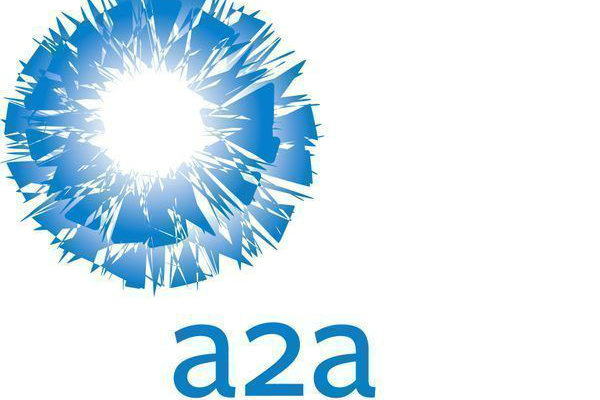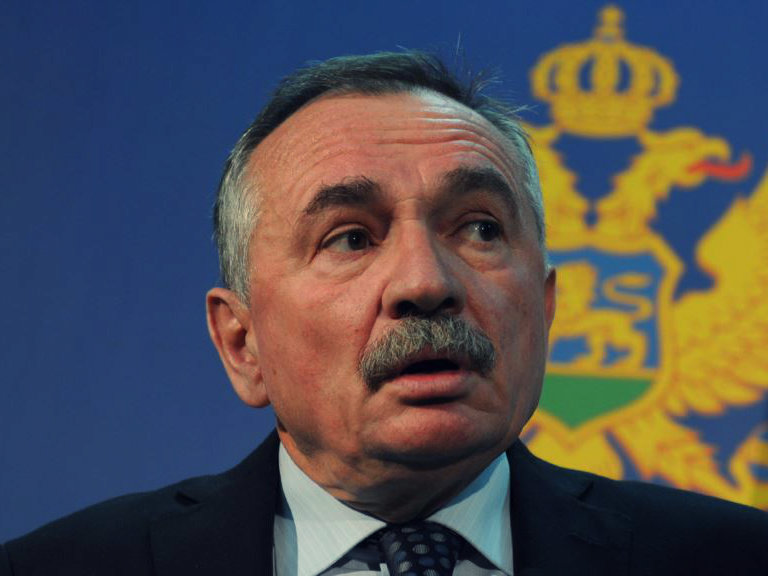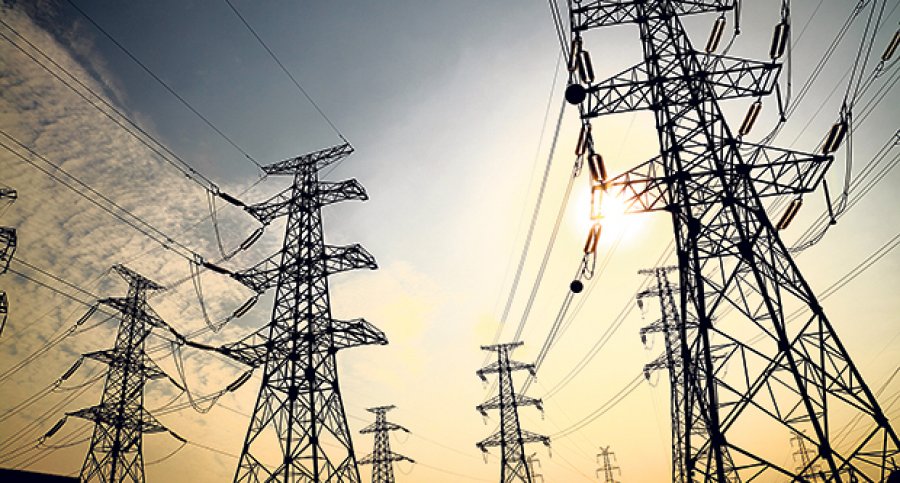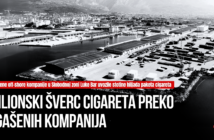Marriage without Obligations
 The Italians are asking the Energy Regulatory Agency to «increase the compensation of invested capital up to the level of other European countries», but they do not mention weather this refers to countries which, like Montenegro, have a supplier that holds monopoly, or to more developed markets where electric energy distributors are forced to take into account competition.
The Italians are asking the Energy Regulatory Agency to «increase the compensation of invested capital up to the level of other European countries», but they do not mention weather this refers to countries which, like Montenegro, have a supplier that holds monopoly, or to more developed markets where electric energy distributors are forced to take into account competition.
After several months of work, the Parliamentary Commission for Privatisation Control did not manage to reach a joint conclusion on the regularity of partner selection procedure for partial privatisation and recapitalization of EPCG and the Contract that was subsequently concluded with the Italian A2A.
The business is “clean”, claim the leading coalition deputies with the remark that “there may exist better company than A2A but it did not apply for the tender ”. The opposition deputies remained convinced that the available documents have not removed doubts that the Prime Ministers of Italy and Montenegro Silvio Berlusconi and Milo Đukanović, who, led by their personal interests, stand behind this entire business, agreed the deal.
Along with chronic political quarrels and skirmishing, one of the main causes of divisions within the Commission was lack of information on what will be done and how in Elektroprivreda of Montenegro in the following five years, while it is managed by experts from A2A. The Contract that was offered to the Commission members mainly deals with how the transaction completed this summer will be closed and who and how, after the Contract expires, will obtain the right to buy off the majority package of shares of Montenegrin Elektroprivreda. Owing to precaution of executive authorities, the key annexes reamained outside the reach of the deputies in charge of control of privatisation moves of Đukanović’s government.
Privatisation documents that were presented to Montenegrin deputies, and which www.podlupom.info had insight into, prove that representatives of minority shareholders of EPCG, during sale of their shares to Italians, were cheated and robbed by more than half a million Euros.
Hence also different interpretations of this busines. A2A does not have the contractual obligation to invest anything into EPCG, claim the opposition interlocutors of www.podlupom.info, who had insight into the privatisation contract. The Government, on the other side, offered to the Commission the unbinding presentation of A2A which states that this company will invest into EPCG 500 milion Euros (calculating or not 420 million aready spent?) and, if it obtains the business of new power plants construction, additional 900 milion. It remained a secret who is right.
Unknown is also weather A2A has an obligation to make profit more than 300, 240 or 180 million Euros in five years. The highest amount is specified in the tender. The lowest appeared during the work of the Commission, when it was stated that the Italians obtained the right to a «discount» of 40 percent. This was revealed to Montenegrin public by Zoran Gospić, member of the Parliamentary Commission for Control of Privatisation from the ruling DPS, without an explanation on how he knows data that remained inaccessable to his colleagues. What Gospić said was subsequently, “corrected” by Vujica Lazović and Srđan Kovačević. They say that A2A is obliged to produce a minimum of 240 million profit in five years (80 percent of the amount requested at the Tender).
It is obvious from the Contract that A2A is obliged to fulfil 80 percent of the set indicators in order to have an opportunity to become the majority owner of Elektroprivreda. It is not clear, however, what and according to which criteria will be rated
Partial exception is the indicator “rate of collection ”. It is clear from the Contract that A2A, if it meets the set conditions, can obtain on these grounds a maximum of 10 points (out of possible 125) in five years, but it is not known – which criteria are in question. However, the other criteria remained unknown and among them also those referring to production and electric energy distribution losses.
 This is why Branko Radulović, Commission member of behalf of PzP, claimed that contrary to announcements on modernisation and increase in capacities, the performances of HPP Piva and Perućica, and TPP Pljevlja will be smaller in five years than they are today.
This is why Branko Radulović, Commission member of behalf of PzP, claimed that contrary to announcements on modernisation and increase in capacities, the performances of HPP Piva and Perućica, and TPP Pljevlja will be smaller in five years than they are today.
“Comparing the investment plan of A2A with the technical performances from the Energy Development Strategy until 2020, I reached the data that in five years the Italians expect the technical performances of the two existing hydropower and one thermal power plants to be smaller than the present, by 10 to 15 megawatts per production object ”, stated Radulović.
Still, even the privatisation documents that were presented to Montenegrin deputies, and which www.podlupom.info had insight into, are a sufficient confirmation that representatives of minority shareholders of EPCG have been cheated and robbed by more than half a million Euros during sale of their shares to Italians. Namely, this transaction was conducted over the brokerage house Monte adria, which charged the exclusivity by astronomic commission of one percent of the value of sold shares. The Government announced that A2A selected the broker and the bank over which it was going to conclude this deal at its own initiative. The Securities Commission declared itself not competent for the warnings of minority shareholders that the buyer of shares should determine the broker over which the sellers are obliged to sell their shares. This arrangement is a part of the privatisation contract of the Government and A2A and provisions of the Law on Securiteis do not apply to it, announced the Commission chared by Zoran Đikanović after, as they said, they had insight into the Contract. It turned out, however, that Article 3.6.3 of the Contract specifies that A2A is going to buy the minority shares «in compliance with Article 45 of the Law on Securities and adequate secondary legislation that regulates the trade in block». Have Đikanović and his colleagues from the Commission deceived the public or have they and the members of the parliamentary team for control of privatisation obtained different versions of the contract? Why did not the Government react to the breach of the contract by A2A? Why didn’t Vujica Lazović as the signatory of the Contract, but also none of his colleagues from the Tender Commission, the Privatisation Council and the Government react even after the statements in which the entire responsibility for the cheating and robbing of minority shareholders is put on their shoulders? Were representatives of A2A aware that, on their first business move in Montenegro, they were breaching the local regulations and Laws? Or the commissions of the business «heavy» around 420 million Euros were worth the general silence.
And a story is told for the sake of story, which does not say anything essentially new and important.
The Energy Regulatory Agency (ERA) will continue to determine the price of electricity, no employees will be dismissed by force in Elektroprivreda, and the Government and A2A specified in the contract from September the conditions according to which one of them will sell to the other party its part of the shares in five years. All this was stated by Renato Ravanelli, the General Director of Italian A2A by the end of October in an exclusive interview for Television Montenegro.
 For the sake of truth, Montenegrin Law on Energy and the accompanying acts resolved several years ago the issue of who and how determines the price of electricity, so it was not necessary to establish a video link with Italy for this information. What the Italians could reveal to us, if our entities do not want to, is: what profit rate will ERA have to grant to Elektroprivreda in order for A2A to fulfil the set conditions on the profit made? And there is also the issue of supply of KAP, Ironworks and the Railroad of Montenegro with electricity. The Italians asked these questions this summer. It is logical to assume that some kind of agreement was reached with the authorities here. But not a word was said about its details.
For the sake of truth, Montenegrin Law on Energy and the accompanying acts resolved several years ago the issue of who and how determines the price of electricity, so it was not necessary to establish a video link with Italy for this information. What the Italians could reveal to us, if our entities do not want to, is: what profit rate will ERA have to grant to Elektroprivreda in order for A2A to fulfil the set conditions on the profit made? And there is also the issue of supply of KAP, Ironworks and the Railroad of Montenegro with electricity. The Italians asked these questions this summer. It is logical to assume that some kind of agreement was reached with the authorities here. But not a word was said about its details.
The Italians ask from ERA «incrase in the compensation of invested capital to the level of other European countries, but they do not mention whether this refers to countries which, like Montenegro, have a supplier that holds a monopoly, or to developed markets at which the electric energy distributors are forced to take into account competition “The project of interconnection between Montenegro and Italy, is of particular importance for Italy, because of extension of relevant markets, and for Montenegro it is important because of development and strengthening of the energy sector ”, reads the interstate agreement between Italy and Montenegro, which was an overture for the subsequently concluded partnership of A2A and the Government in Podgorica. Does the gradation “particular imporatnce ” for Italy as opposed to “important” for Montenegro speak also about the effects that should be expected from this energy arrangement?



